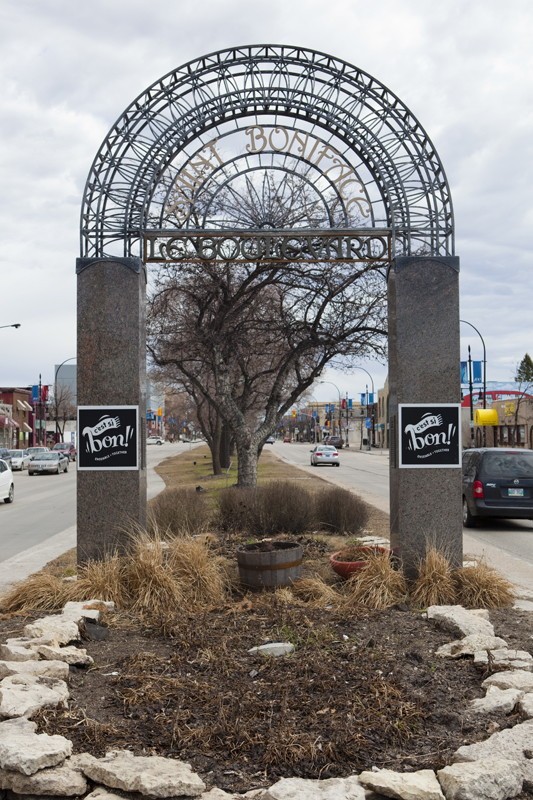Winning back City Hall with small victories
Over the course of several years working for The Uniter and following the day-to-day events at City Hall, I have noticed a propensity among Winnipeg administrators and politicians to skirt responsibility when faced with media inquiries and public criticism.
The powers that be have grown insular and exude a sense of entitlement. They often float out proposals and make decisions behind closed doors and, even when their decisions have merit, they lack the intellectual fortitude or the passion to defend them.
As a result, suspicion and cynicism festers among the voting public.
Take, for example, an executive policy committee decision in 2008 to forgive mayor Sam Katz’s $233,000 city tax debt in the Riverside Park Management fiasco or the mayor’s frequent trips to Arizona. It appears that, due to one such trip, he was absent for the city’s annual Remembrance Day ceremony at the Winnipeg Convention Centre last year.
Take, for example, the mayor’s decision to hold the city’s annual holiday party at Hu’s Asian Bistro, a restaurant he owns, and then subsequently file the event as a city expense. Or his decision to downplay conflict of interest allegations after his close friend, Phil Sheegl, was hired as the city’s top administrator to culminate a closed-off, secretive process.
Sheegl subsequently erected a statue of the “three wise monkeys” - see no evil, hear no evil, speak no evil - outside his City Hall office.
I think these incidents speak volumes about a culture of arrogance among public officials in Winnipeg.
Although all of the above examples have been widely reported by the media, the consequences were marginal, to the say the least, which creates a flippant attitude among city staffers when approached to comment on more substantial issues.
In the case of Winnipeg’s potential service sharing deal with West St. Paul over water and waste infrastructure, The Uniter was hard pressed to find a public servant or city councillor willing to publicly defend, and properly explain the merits of, expanding our pipes to the bedroom community.
There is a reason for this insular culture and, unfortunately, a lot of it can be attributed to multiple decisions that have incrementally watered down the intention of Unicity, which took effect 40 years ago.
When the amalgamation of 13 previously separate municipalities took place in 1972, there were 50 city councillors, a Board of Commissioners, 13 community committees (representing each of the amalgamated municipalities) and resident advisory groups (RAGs) to advise those committees.
“ The powers that be in Winnipeg have grown insular and exude a sense of entitlement
The community committees and resident advisory groups encouraged the public to get involved in the city’s public policy process. Having 50 councillors encouraged political parties to seek election based on well-communicated public policy platforms because having a council of 50 independents would be impossibly unruly.
In other words, public participation and strong, responsible government was encouraged.
However, each structural reform since 1972 has served to decrease the power of the public, increase the power of the popularly elected mayor and weaken the strength of council as a whole.
In 1977, the number of council seats were reduced to 29 and the community committees reduced to six. In 1989, the mayor was given the power to appoint an executive policy committee comprised of friendly city councillors. (They had previously been appointed by council as a whole.)
In 1992, the number of council seats was reduced to 15, the community committees to five and the RAGs abolished outright. In 1997, city administration was centralized and the mayor was awarded the power to dismiss the chief administrative officer, the head of the public service.
All of these reforms contributed to give us the council, and the political culture, we have today.
But where do we go from here?
As much as academics and urban nerds like to speculate about structural minutia, it is important not to overstate the importance of structural change.
In other words, I think we can win back City Hall through small victories.
Take, for example, Old Kildonan councillor Devi Sharma’s recent decision to open a constituency office in her ward and to spend her public allowance frugally. Such an act goes a long way to dispel the suspicions of voters worn down by a police service with ticket quotas and a mayor who can’t pay for his own dinner at his own restaurant.
Take, for example, the abundance of important community groups, from the Winnipeg Citizens Coalition, the Social Planning Council, the Spence Neighbourhood Association and the Council of Women of Winnipeg that are attempting to shape the future of our city.
Finally, look at the burgeoning population of bloggers and concerned citizens that are putting pressure on city council to be more effective and transparent.
These may be small measures. But, taken together, they can help change the political culture of Winnipeg and, perhaps eventually, create the conditions for long-lasting, workable structural change.
Ethan Cabel is a politics student at the University of Winnipeg and The Uniter’s news assignment editor.
Published in Volume 66, Number 26 of The Uniter (April 5, 2012)







